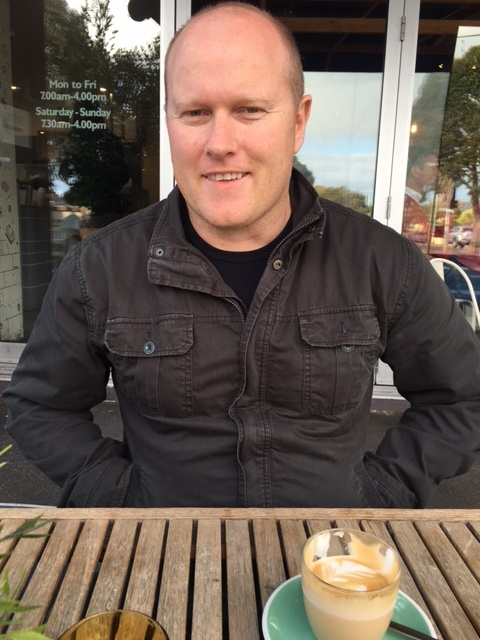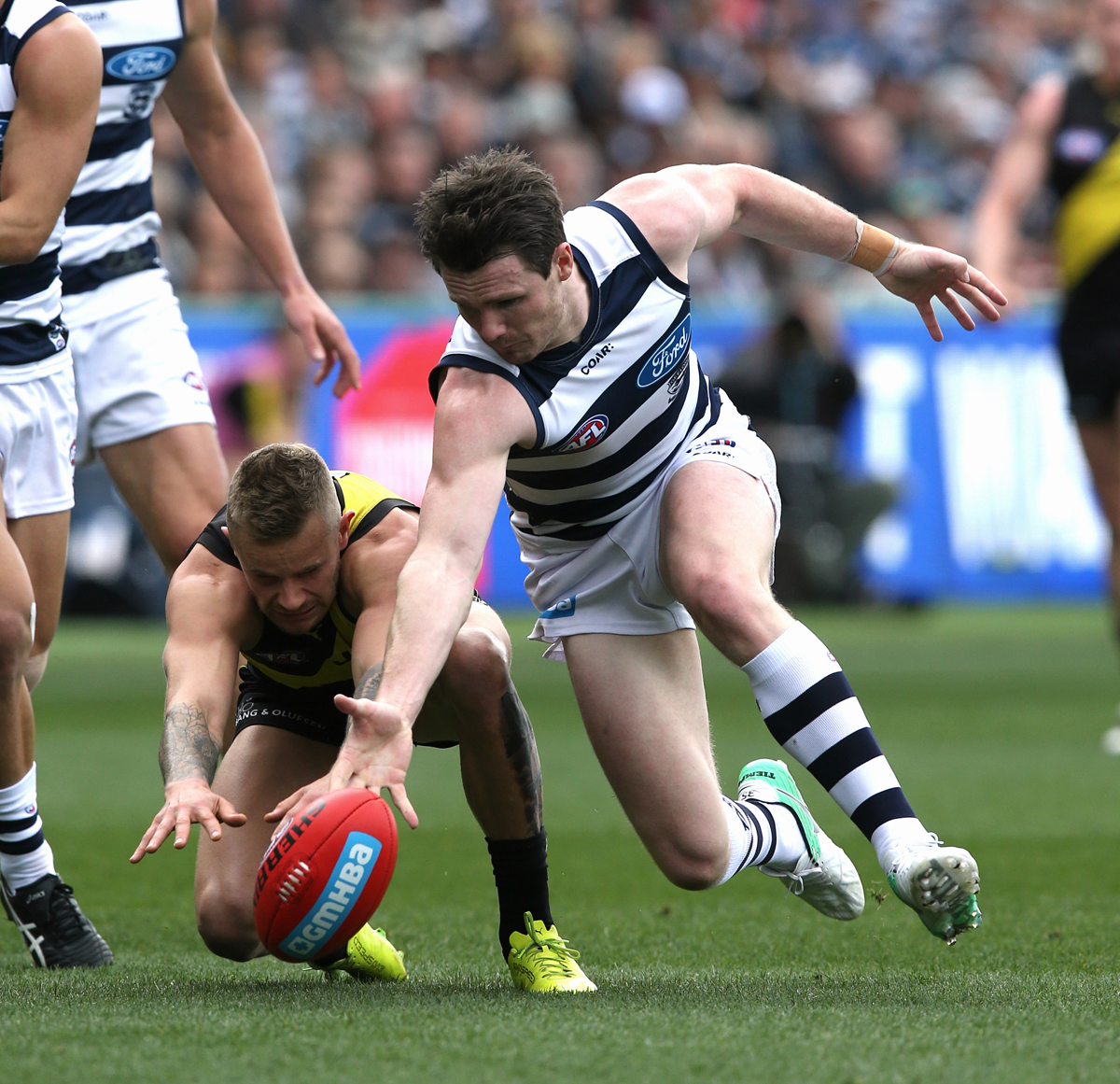A LOT GOES ON behind the scenes of any professional cycling team but it is rarely put out there for public consumption. Australia’s only elite team Orica-Scott has changed that. Chief writer RON REED finds out how and why from the man responsible:
For a lot of people, the six-year existence of Australia’s only World Tour professional cycling team has been the ride of a lifetime. It’s fair to say that includes the owner, Melbourne business, showbiz and sports entrepreneur Gerry Ryan, team manager Shayne Bannan, scores of big-name and not so prominent riders and dozens of staff – plus one ambitious young video producer and film-maker named Dan Jones.
Jones, 36, is on an exhilarating roll. He became a father for the first time a fortnight ago and on August 24 his documentary feature film ALL FOR ONE – the inside story of the team originally known as Greenedge Cycling – will be released in 44 cinemas around Australia. A handful of preview screenings – another of which will be held in Melbourne on Wednesday morning – have been met with unanimous acclaim. Mick Malthouse, the footy coach, said of it: “One of the best doco/films, if not the best, I have seen. It should be a must-see for year 11/12 students, sports clubs and businesses to witness effort, comradery (sic) and spirit.”

Anyone who has observed elite-level cycling close-up, even from the outside, as I have done on a number of grand tours of France and Italy both before and since the formation of Ryan’s outfit, has quickly become aware that it is a highly volatile, competitive, dangerous, unpredictable and colourful environment – unique, really.
Jones didn’t really appreciate what he was walking into when he became involved on the fringes in 2005, and neither – it is probably safe to suggest – did Ryan at that stage. Both were being introduced to the sport at this elite level by knockabout former pro rider and all-round cycling guru – and sportshounds.com.au correspondent – John Trevorrow, as was I a couple of years earlier for that matter.
Jones was little more than a wide-eyed would-be armed with some unsophisticated video equipment and a vague idea of doing a doco on an event he knew almost nothing about. Trevorrow took him under his wing and the result was a primitive but not entirely unamusing production called Detour – focusing largely on the chaotic nature of the allegedly guided tours Trevorrow used to run in those days. It got a certain amount of public exposure and caught Ryan’s eye.
Fast-forward to 2011, by which time Ryan had decided it was high time Australia had a presence at the Tour de France and elsewhere commensurate with the level of talent – and results — that riders such as Robbie McEwen, Stuart O’Grady and Cadel Evans were demonstrating. He committed something like $15m annually to get just such a project on the road, naming it GreenEDGE Cycling, which has since changed to Orica-GreenEDGE, Orica-BikeExchange and, now, Orica-Scott, with another change inevitable when Orica’s sponsorship contract expires soon.
He broke new ground among the big pro teams of Europe and America by embedding Jones into the outfit with a brief to give cycling fans a reason to follow the team. Jones did it brilliantly with a frequently-uploaded video called Backstage Pass that took viewers behind the scenes and introduced them to the riders, most of whom had previously just been names on a little-known list. All the while, the documentary was on the agenda, a work in very gradual progress.
As inexperienced as he was, Jones was not short of clues. He knew he needed to pitch his work at non-cycling fans as well as the aficionados, especially as the Tour de France was rapidly becoming a popular attraction for Australian tourists. He went after a diverse audience and got it.
He also knew that walking with a camera into the riders’ spaces would not be a straightforward exercise and might be considered intrusive. “If I was a rider, I wouldn’t like my privacy invaded,” he said. “The first thing I said to them was that it would be built on trust and if you don’t trust me it won’t work. It took three to six months to earn that trust. There was a fine line between showing what is real and for people to be questioning your intentions.”
The videos, of which nearly 500 have now been made, plus a handful of one-off specials about certain aspects of life on the road, have had more than 16 million hits and resulted in the team becoming one of the most popular in the peloton.
But the need to straddle that fine line meant that plenty of mishaps and heated dialogue have never been shown – until now. All For One is the beneficiary of that. “There have been a few prickly bits that are in the film, where they will be seen for the first time,” Jones says. “We’re not sugar-coating anything now.” One concerns the infamous day when the team bus hit the structure over the finish line during a stage in Corsica, almost forcing the race to be shortened. A lot of angry words ensued, some of which seemed at first to be directing the blame squarely at the boss, Ryan – although, probably luckily for all concerned, that turns out to be not the case. The Sporting Director (head coach) Matt White is shown in a heated tirade directed at star sprinter Matt Goss one year. And so on.
“The culture has not been perfect. A lot can go wrong. We didn’t want a puff piece. We wanted to take people on a roller-coaster ride,” Jones said.
Actually putting the 90-minute film together, which was done by the Melbourne-based Madman Productions, was a massive challenge that took 18 months to conquer. It involved distilling 4,000 hours of videos recorded over six years, and editing more than 50 interviews. With about 10 other people involved, Jones spent long days sitting in a dark room working through it all and thinking to himself: “I’m going round the twist here – I hope it’s worth it.” The first of 16 drafts was a disaster in his own eyes so it was immediately scrapped in favour of a new start. Draft four was an improvement, he thought – but his fiancé, Sarah, told him it was even worse. “I started to panic,” he said. “I love her honesty – but hearing that made me sick in the guts.”
Like the longest, toughest bike races, eventually the finish line arrived – and now Jones wouldn’t change a frame. The only regret is that so much has had to be left out. One is the landmark moment in 2013 when star rider Simon Gerrans delivered the team’s first stage win in the Tour de France, also in Corsica two days after the bus incident. Victory in the team time trial followed the next day and that is in the film. Understandably, Gerrans – who has been the team’s best rider over the entire journey – is believed to be less than chuffed that his greatest moment is missing.
He is entitled to be. For the first time, he was not selected for the Tour de France this year and, at 37, may not be offered another contract. If that’s the case, his contribution – especially in the tumultuous early years — will be remembered with the utmost respect. At last week’s lunch for the Maillot Jaune Club, where old pro cyclists get together to reminisce and gossip, Trevorrow said Gerrans “was the one who got them where they are now”. Commentator Matt Keenan agreed Gerrans would not be there next year but said he was still riding well enough to get a new deal somewhere else.
For what it’s worth, Keenan also said that Orica’s brilliant young sprinter Caleb Ewan, who he believes could have won a stage at the Tour this year but was not given an opportunity to participate in the race, might be better off moving to a team such as Lotto where he would be given more responsibility. All of which is to say that life at Australia’s only World Tour outfit is always a moving feast – nothing is ever the same as it was the year before. Jones knows that as well as anyone and not just because his film will say so. After six years of living half in Spain and half in Melbourne and with fatherhood responsibilities now making that untenable, he will work at the final Grand Tour of the season, next week’s Spanish Vuelta, and then say goodbye to the cycling family himself, having left it with something special to remember him by.
RON REED has spent more than 50 years as a sportswriter or sports editor, mainly at The Herald and Herald Sun. He has covered just about every sport at local, national and international level, including multiple assignments at the Olympic and Commonwealth games, cricket tours, the Tour de France, America’s Cup yachting, tennis and golf majors and world title fights.



Discussion about this post